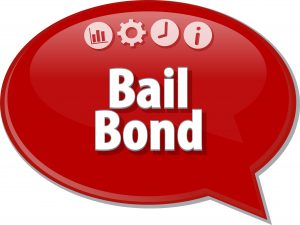
Raising bail for a friend or family member can be stressful and expensive. And depending on the type of bail arrangement you make, that money may not be returned to you. But how can you know when (or if) to expect a refund?
If this is your first contact with the criminal justice system, the answers can seem confusing. To help clarify the issue, let’s take a quick look at the bail system and the types of bail arrangements available.
The Bail System
The basic principle behind the bail system is to allow defendants to remain free while awaiting trial. To ensure the defendant’s appearance on their designated court date, the court imposes a bail amount, usually set by a judge at the arraignment.
Bail amounts vary according to the nature of the offense and the defendant’s status in the community. Generally speaking, those who are considered a low flight risk, have few or no prior offenses, or are accused of a minor offense can expect to pay lower bail amounts.
Because bail is designed to assure that defendants meet their required court appearances, any refund is NOT dependent on the outcome of the case (verdict, plea bargain, or charges dropped), but rather on the type of bail secured.
Let’s look at the basic bail types…
Cash Bail
If you pay the full bail amount to the court in cash, you should expect a refund—provided that the defendant makes his or her designated court date. Missing the court appearance (without proper notification) results in forfeiture of the entire bail amount. If you post cash bail, you will receive a receipt. Store it safely in a place you can find it again. You will need to get your money refunded after all the defendant’s court appearances have been made successfully. Refunds on cash bail are typically issued some weeks after the conclusion of a case.
Property Bond
A property bond is much like a cash bond, except that instead of cash, some form of property (car, home, jewelry) is offered as security. Again, if the defendant makes their court dates, the bond is cleared after the case concludes, and the property remains in your hands. If the defendant fails to appear, the bond (and the property) are forfeited to the court.
Surety Bail
Surety bail means that you work with a bail agent (bondsman) to raise the required bail. You pay a premium (a percentage of the total bail amount), and the bail agent puts down the remainder. For example, if bail is set at $1,000, you may pay a premium of 10% ($100), while the bail agent puts down the other 90% ($900) to secure the required bail in full. This premium is NOT refundable, even if the defendant makes their appointed court appearance. It pays for the bail agent’s services in assuring that the defendant meets all required obligations. Also, because the bail agent assumes the bulk of the risk if the defendant misses their court date, the premium covers the expense of tracking down “skips” (defendants who miss their court dates intentionally).
We hope these simple guidelines help you make more informed choices when selecting the most appropriate bail option.
____________________________________________________________________
Bond, James Bond, Inc. can handle any size or type of Georgia bail bonds in Barrow County, Bartow County, Cherokee County, Clarke County, Cobb County, Floyd County, Gordon County, Gwinnett County, Paulding County and Polk County. We are always open - 24 hours a day, 7 days a week including holidays. We have 11 locations which are conveniently located to serve you better. Visit us at www.bondjamesbondinc.com, or call Bond, James Bond, Inc. at (770) 382-9111.

